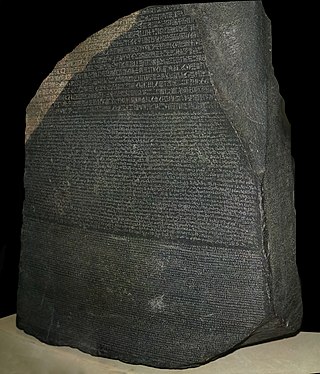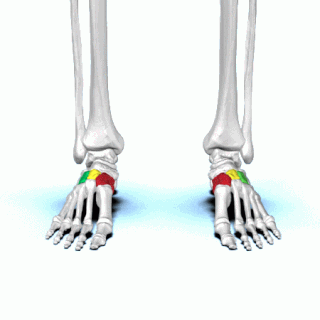
Writing is a cognitive and social activity involving neuropsychological and physical processes and the use of writing systems to create persistent representations of human language. A system of writing relies on many of the same semantic structures as the language it represents, such as lexicon and syntax, with the added dependency of a system of symbols representing that language's phonology and morphology. Nevertheless, written language may take on characteristics distinctive from any available in spoken language.
IA, Ia, or ia may refer to:
NA, N.A., Na, nA or n/a may refer to:

In the Ancient Near East, clay tablets were used as a writing medium, especially for writing in cuneiform, throughout the Bronze Age and well into the Iron Age.

The metatarsal bones, or metatarsus, are a group of five long bones in the midfoot, located between the tarsal bones and the phalanges (toes). Lacking individual names, the metatarsal bones are numbered from the medial side : the first, second, third, fourth, and fifth metatarsal. The metatarsals are analogous to the metacarpal bones of the hand. The lengths of the metatarsal bones in humans are, in descending order, second, third, fourth, fifth, and first. A bovine hind leg has two metatarsals.

Cuneiform proper is a logo-syllabic script that was used to write several languages of the Ancient Near East. The script was in active use from the early Bronze Age until the beginning of the Common Era. Cuneiform scripts in general are marked by and named for the characteristic wedge-shaped impressions which form their signs. Cuneiform is the earliest known writing system and was originally developed to write the Sumerian language of southern Mesopotamia.

There are three cuneiform ("wedge-shaped") bones in the human foot:
Cuneiform Records is a record label in Silver Spring, Maryland.

Ishmael Wadada Leo Smith is an American trumpeter and composer, working primarily in the field of creative music. He was one of three finalists for the 2013 Pulitzer Prize for Music for Ten Freedom Summers, released on May 22, 2012.

Chris Speed is an American saxophonist, clarinetist, and composer.
Sumerian or Sumerians may refer to:

The kunga was a hybrid equid that was used as a draft animal in ancient Syria and Mesopotamia, where it also served as an economic and political status symbol. Cuneiform writings from as early as the mid-third millennium BCE describe the animal as a hybrid but do not provide the precise taxonomical nature of the breeding that produced it. Modern paleogenomics has revealed it to have been the offspring of a female domesticated donkey and a wild male Syrian wild ass. They fell out of favor after the introduction of domesticated horses and mules into the region at the end of the 3rd millennium BCE.
This page is based on this
Wikipedia article Text is available under the
CC BY-SA 4.0 license; additional terms may apply.
Images, videos and audio are available under their respective licenses.







